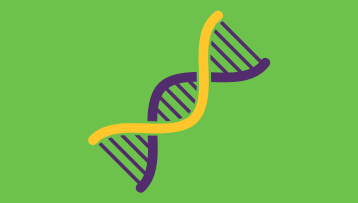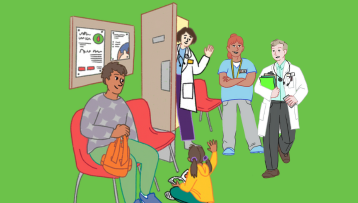A new UK study suggests that changes in some genes linked to TSC might trigger inflammation inside the body. This discovery adds a new piece to the TSC puzzle and could influence future research and treatment.
We already know that TSC causes a growth-control system in the body to become overactive, leading to many of the features of the condition, such as TSC-related tumours in different parts of the body. Medicines called mTOR inhibators block this system, including everolimus and sirolimus. But, these treatments do not work for everyone, and sometimes growths return when treatment stops. That is why researchers have been asking whether other processes, beyond cell growth, might also play a role.
In this study, led by Professor Andrew Tee at Cardiff University, researchers found that TSC switches on a major inflammation system called NF-κB (pronounced “NF-kappa-B”). This system acts like a master switch for the body’s immune responses. When it’s turned on, it tells cells to produce signals that trigger inflammation, something the body normally uses to heal or fight infection. But in TSC, this switch seems to be stuck in the “on” position, similar to how the switch for ‘Grow’ also remains stuck on. The result is that cells send out too many inflammatory signals, which can make the surrounding environment more stressed and reactive.
The team tested whether current TSC medicines alone could calm this inflammation, which didn’t appear to completely stop the inflammatory signals. However, when researchers combined those medicines with ones that target NF-κB, the cells became much less overactive.
If inflammation plays a role in TSC, this discovery might open the doors to new ways to protect the body, prevent damage and support repair.
This does not mean such inflammation medicines are ready for use in people with TSC. The research was done in lab-grown cells, not in people. But, it does show an important first step in a new potentially important TSC discovery.







































































































































